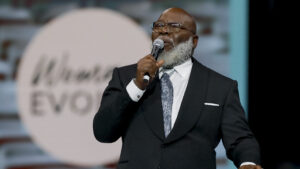
NASHVILLE, Tenn. (BP)–The Israeli government’s forced removal of Jewish settlers from Gaza won’t divert the international spotlight from the tensions between Israelis and Palestinians, several longtime observers told Baptist Press Aug. 17.
“Few observers on either side expect that the withdrawal from Gaza will lead to peaceful relations between Israel and the Palestinians,” said Jim Sibley, coordinator of Jewish ministries for the Southern Baptist North American Mission Board.
“Nevertheless, the Israeli government seems to believe that it should do all it can to accommodate the aspirations of the Palestinian people without jeopardizing its own security concerns,” Sibley, a former Baptist worker in Israel, observed.
Bruce Mills, an American retiree living in Israel and member of the Jerusalem Baptist Church, said, “This issue is not going to go away” because tensions next will turn to the Palestinian push for Israel to withdraw from the West Bank and East Jerusalem.
“Jesus is the rightful King of Israel, Gaza and the West Bank,” Mills said, “and until He returns and establishes sovereignty, His Kingdom is not of this world.”
“Therefore, Jerusalem Baptist Church has no stance as a body for or against the withdrawal of the settlements from Gaza,” Mills said.
“But there is definitely a problem with individuals who come to Israel on tourist visas, wanting Israel to fulfill their particular prophetic understanding of Scripture with regard to the Gaza withdrawal,” Mills noted. “They want to lay down in front of a tank or a bulldozer or in some way participate in the demonstrations within the larger Israeli society for or against the withdrawal. Citizens of the country have this right, but Israeli society looks upon the invasion of their country by these American tourists as a destabilizing force in whatever policies are being debated.”
Paige Patterson, president of Southwestern Baptist Theological Seminary, said a gesture of good faith on the part of the Israelis “is altogether appropriate, and I commend Prime Minister Sharon for his intentions.”
But, Patterson stated, “My problem with the decision rests in its probability for success. My fear is that the Palestinian temperament will treat the gesture as weakness and that terrorism will continue against Israel. If that is the case, the gesture is emptied of its sacrificial content and the only legitimate current Middle-Eastern attempt at democracy is further jeopardized.”
Sibley said Christians should pray “for those in authority in Gaza as well as in Israel to restrain violence and lawlessness. Anti-Semitism is rampant among some segments of the Palestinians and will certainly bring God’s judgment.
“In these days in which lives are disrupted, futures are uncertain and peace is elusive, we pray that both Israelis and Palestinians will be more open to the Prince of Peace, the Messiah of Israel, and the only hope of salvation,” Sibley said.
Sibley noted that “Israel’s right to the land,” from a biblical standpoint, “is not the same as their possession of the land.” The Jews, throughout history, “have most often not been allowed to possess the land due to unfaithfulness to God. God has used other nations and peoples to bring chastisement to Israel through her long history.
“But that history also is littered with the memory of nations who overstepped their bounds and stirred up hatred against the people of Israel and against the God of Israel,” Sibley noted.
Under the initiative of Israeli Prime Minister Ariel Sharon, 21 Jewish settlements, encompassing 2,206 homes, are being abandoned among Gaza’s 1.3 million Palestinians.
The evacuations formally began Aug. 15 and moved to the use of force by Israeli troops Aug. 17; Israeli authorities said the pullout could take three weeks.
As of mid-afternoon Aug. 17, nearly 600 of the homes had been cleared of settlers, the Jerusalem Post reported.
Protests during the days leading up to the evacuations ranged in size from tens of thousands of sympathizers at Jerusalem’s Western Wall to families of Jewish settlers who have locked and barricaded themselves behind metal sheets hammered into the doorways and windows of their homes. One Jewish settler on the West Bank killed four Palestinians Aug. 17 in the worst outbreak of violence since another settler killed four Palestinians in early August. Also on Aug. 17, a 54-year-old settler poured gasoline over herself and lit it, sustaining burns on more than 70 percent of her body.
C. Greg Kingry, vice president for business administration at Southwestern Seminary, in Fort Worth, Texas, and a former administrator of Baptist Convention in Israel, told Baptist Press, “I am not really surprised at the level of emotion and resistance to giving up land in the Gaza Strip. Over there, land is not just a commodity to be bought and sold; land is tied up in their idea of heritage.
“For the Palestinians, getting the land back says something to them about their destiny. For the Israeli settlers, when the Gaza Strip first opened up they saw it as a way to ensure security for the nation of Israel, and they saw the land as something God had promised to them,” Kingry said.
Samuel Shahid, professor of missions and Islamic studies at Southwestern, said the Gaza pullout will “give some hope to the Palestinians. But some of them will not be satisfied unless they repossess the entirety of Palestine.
“At the same time, I am concerned that there will be a division in Israel between those who support the pullout and the Orthodox Jews along with the settlers,” Shahid said. “Another concern is that there will be a conflict among the Palestinians themselves; there are the fundamentalists and there are those who are willing to work with Israel.
“This whole situation is going to create chaos in that part of the world. We have to pray and hope for the best,” Shahid said.
Sean McCormack, a State Department spokesman, was asked by a reporter during a press briefing Aug. 15, “… what happened to the Palestinian obligation to dismantle [the Islamic militant/terrorist group] Hamas, which evidently will not only stay in business but get a large role in whatever form of government takes over? … Is that sort of a lost goal by the Bush administration?”
McCormack replied that “the Palestinian Authority and President [Mahmoud] Abbas understand that they have an obligation to dismantle terrorist networks and, in the immediate term, to ensure that this withdrawal takes place in an atmosphere of calm.”
“Our view of Hamas is well-known,” McCormack said, noting that President Bush has underscored “how in a democracy you can’t have armed groups operating outside the rule of law.”
A question also was raised about the destruction of settlers’ homes and other facilities after their exit from Gaza.
McCormack replied that when Secretary of State Condoleezza Rice was in Jerusalem a couple months ago “she talked about this very issue and the two sides came to an agreement with regard to … the destruction of this housing. And right now there are a few remaining issues that they are working out between them — the Israelis and the Palestinians — regarding the rubble from this housing.”
McCormack stated that “the ultimate success for this withdrawal and, you know, ultimately for re-energizing and making progress on the ‘road map’ [for Mideast peace] is it’s going to be the two parties…. We have a role to play, the European Union has a role to play, the Arab counties have a role to play. But in order to make this happen, it’s … the Palestinian Authority and the Israelis.”
The “road map” to peace in the Middle East sponsored by the United States, Russia, the European Union and the United Nations calls for a Palestinian state with temporary borders and a permanent state to follow. It requires of the Palestinians an immediate cessation of violence against Israel, the dismantling of terrorist organizations and the recognition of Israel’s right to exist in peace. Of Israel, it requires the destruction of Jewish settlements constructed in the West Bank since March 2001 and the freezing of all settlement activity, an end to attacks on Palestinians and the destruction of their homes, and withdrawal to the borders in place before Israel gained new territories in the 1967 war. Critics of the plan say it would result in the division of Jerusalem between Palestinians and Israelis.
–30–
Brent Thompson & Gregory Tomlin contributed to this article.













